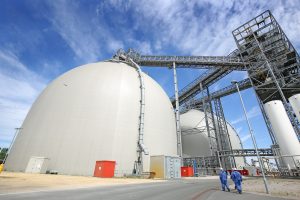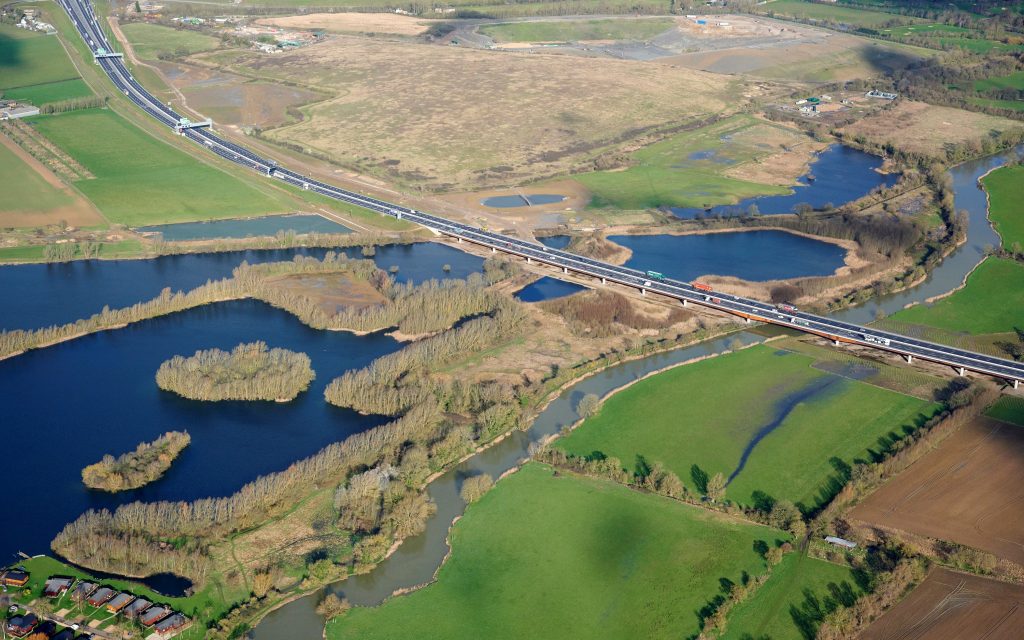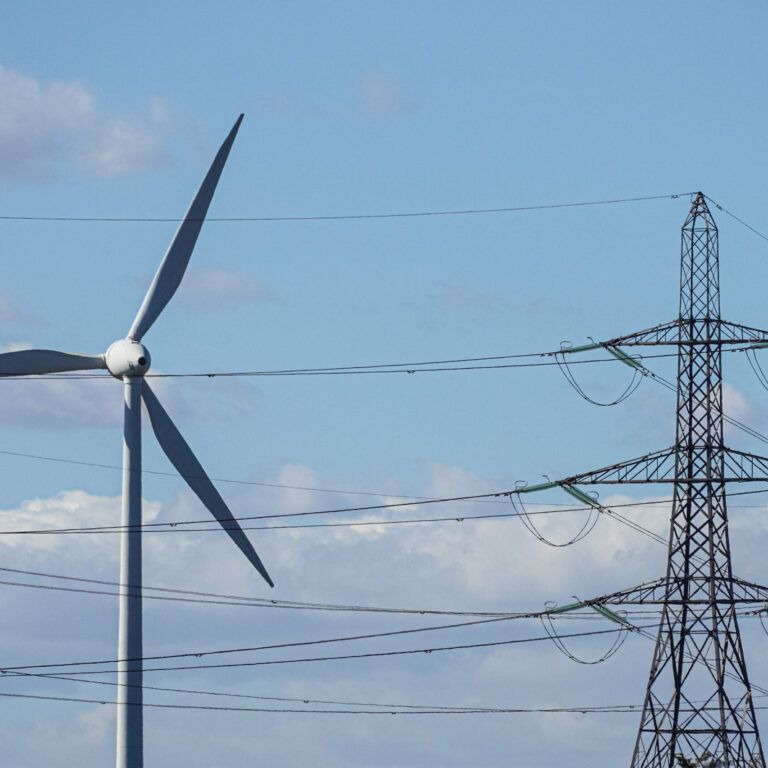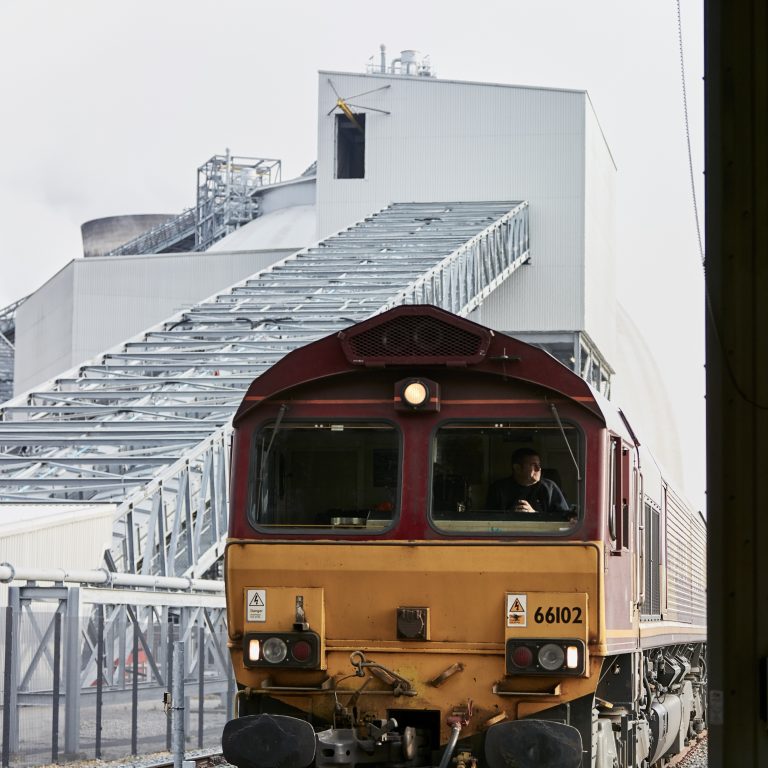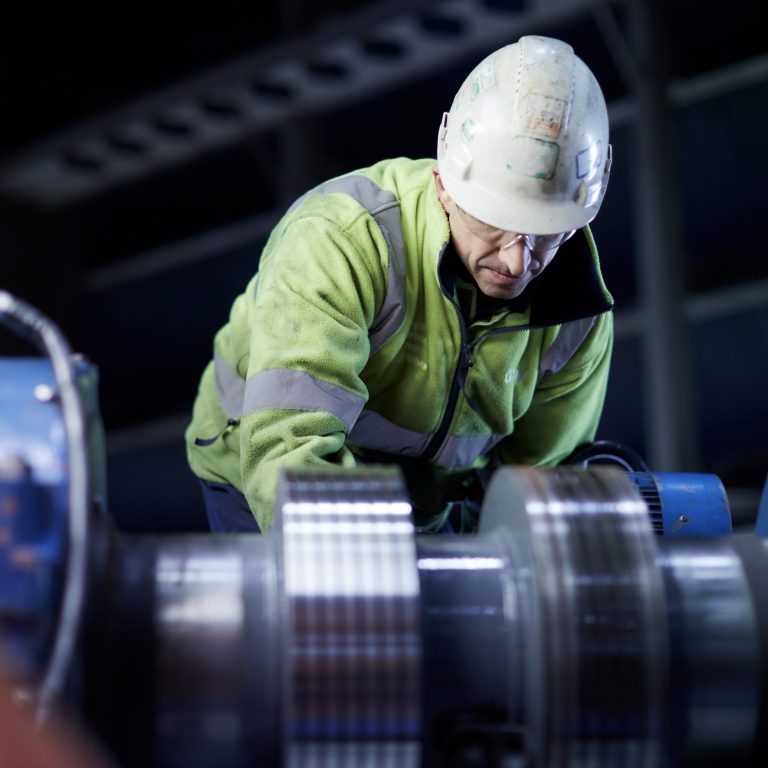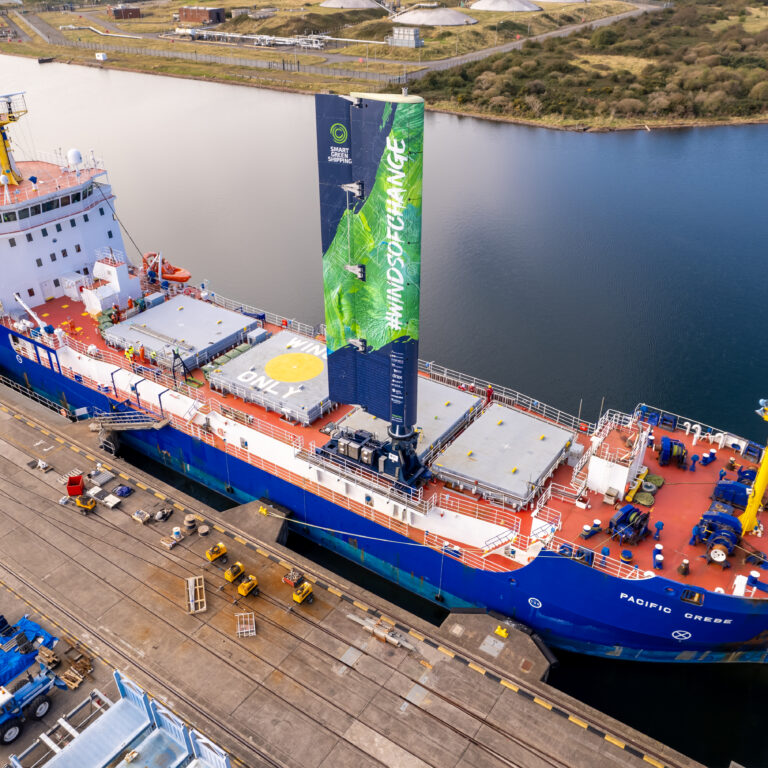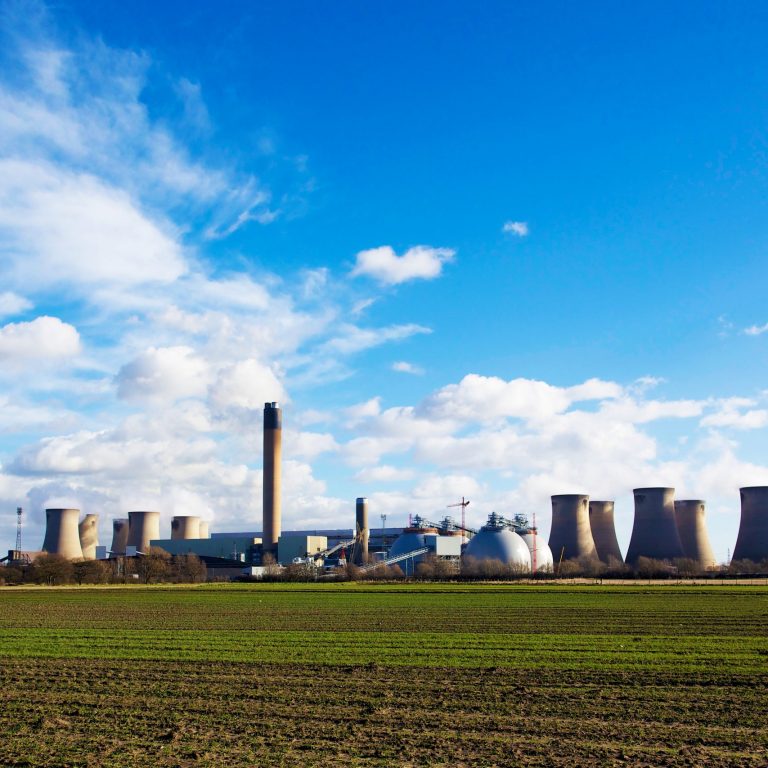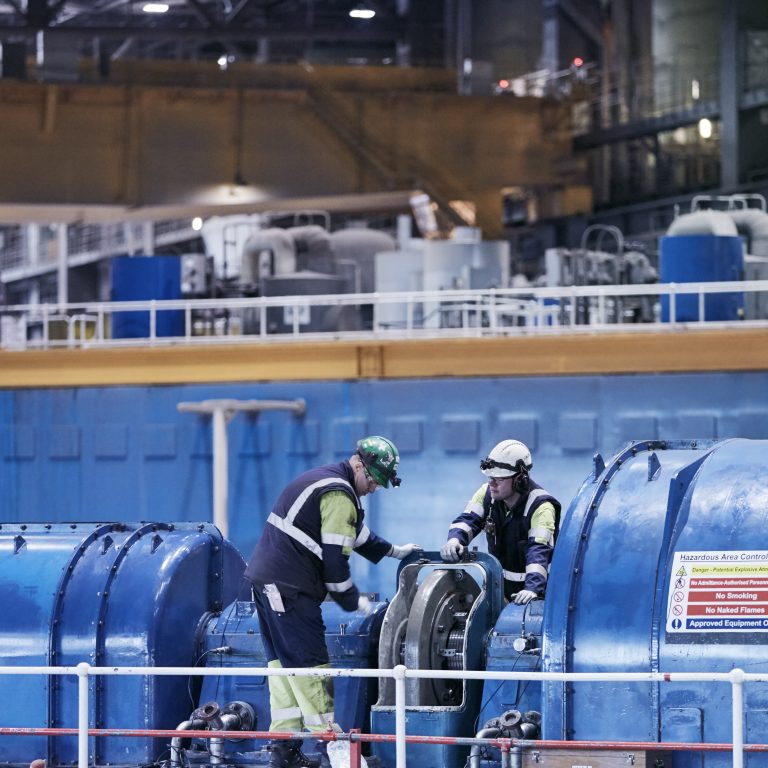Last month the £1.5 billion A14 Cambridge to Huntingdon scheme was completed six months ahead of schedule, providing improved links between the East of England, the Midlands and the North.
The ash from Drax Power Station, in North Yorkshire, was a key ingredient in the project’s concrete structures. Power Minerals Ltd (PML), which has a team based at the power station marketing the station’s ash stockpile, partnered with concrete firm Mick George to supply the road scheme.
“The success of the A14 scheme shows what the UK’s construction sector is capable of, when it works as one to achieve a common goal,” said Nigel Waldron, Managing Director of PML.
“Our long-standing relationship with Drax and our partnership with Mick George was just one part of a collective industry-wide effort that has resulted in the A14 project coming in before time and on budget.
“Infrastructure projects can play a major part in restarting the UK’s economy post-Coronavirus, and this project, which was the biggest road building scheme in the UK, is a prime example of what can be achieved by industry working across the sectors.”
In February, Drax announced that it would stop using coal in March next year as part of its world-leading ambition to become a carbon negative company by 2030 by pioneering Bioenergy with Carbon Capture and Storage (BECCS) technology. This means it will remove more carbon dioxide from the atmosphere than is produced across its operations. Over the last decade four of the power station’s six generating units have been converted to use sustainable biomass and now produce 12% of the UK’s renewable energy. This has transformed Drax to become the UK’s largest renewable power generator and is the biggest decarbonisation project in Europe.
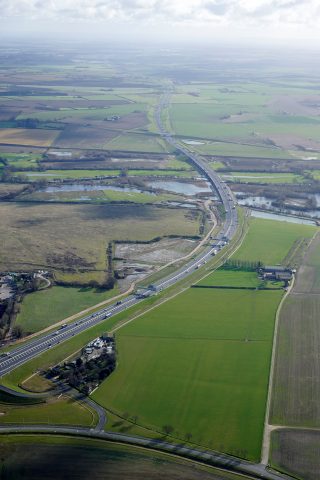
The scheme includes a major new bypass to the south of Huntingdon and upgrades to 21 miles of the A14.
Mike Maudsley, Drax Group’s UK Portfolio Generation Director, said:
“Ending the use of coal at Drax next year will be a landmark moment in achieving our world-leading ambition to become a carbon negative company by 2030.
“The use of our ash in this major construction project will leave a lasting legacy in the communities it has helped to connect across the A14 long-after coal generation comes to an end at the power station.”
Major construction and development projects that use PML’s ash in their concrete boast better ‘green’ credentials, as the cement manufacturing process uses significantly less energy. Using power station ash to make concrete also protects the environment, by removing the need to mine fresh aggregate from the countryside.
The £1.5 billion A14 Cambridge to Huntingdon scheme took four years to complete, upgrading 21 miles of road to transform journeys on the A14 in Cambridgeshire, shaving up to 20 minutes off journeys and strengthening links between the North, the Midlands and the East of England.
Work on the project began in November 2016. It employed more than 14,000 people in total, with up to 2,500 working on site during the project’s peak. Building the new road took 14 million construction hours – the equivalent of almost 1,600 years.
ENDS
For more information visit www.drax.com/uk
Media contacts:
Aidan Kerr
Drax Group Media Manager
E: aidan.kerr@drax.com
T: 07849090368
Gary Phelps
PR executive for Power Minerals Ltd
E: garyphelpscomms@outlook.com
T: 07720 403036
About PML
Power Minerals Ltd (PML) is the UK’s leading independent supplier of Power Station by-products, providing ash sales and marketing services for the power generation sector, and creating a robust and reliable supply chain of sustainable energy by-products to the construction, manufacturing and infrastructure sectors.
As well as working with the by-products of coal-powered energy, our investments and research programmes are exploring new markets for the by-products of biomass power stations, and other renewable energy plants.
Every year PML diverts millions of tonnes of ash from landfill, while reducing the need for its clients to impact the countryside by mining for virgin aggregates. By sourcing its products in the UK, PML reduces their carbon footprint. We are also retrieving long-forgotten ash from old stockpiles, and developing methods to enhance these sources, ensuring a sustainable supply chain for the future.
About Drax
Drax Group’s purpose is to enable a zero carbon, lower cost energy future and in 2019 announced a world-leading ambition to be carbon negative by 2030.
Its 2,900-strong employees operate across three principal areas of activity – electricity generation, electricity sales to business customers and compressed wood pellet production.
Power generation:
Drax owns and operates a portfolio of flexible, low carbon and renewable electricity generation assets across Britain. The assets include the UK’s largest power station, based at Selby, North Yorkshire, which supplies five percent of the country’s electricity needs.
Having converted two thirds of Drax Power Station to use sustainable biomass instead of coal it has become the UK’s biggest renewable power generator and the largest decarbonisation project in Europe.
Its pumped storage, hydro and energy from waste assets in Scotland include Cruachan Power Station – a flexible pumped storage facility within the hollowed-out mountain Ben Cruachan. It also owns and operates four gas power stations in England.
Customers:
Through its two B2B energy supply brands, Haven Power and Opus Energy, Drax supplies energy to 250,000 businesses across England, Scotland and Wales.
Pellet production:
Drax owns and operates three pellet mills in the US South which manufacture compressed wood pellets (biomass) produced from sustainably managed working forests. These pellet mills supply around 20% of the biomass used by Drax Power Station in North Yorkshire to generate flexible, renewable power for the UK’s homes and businesses.
For more information visit www.drax.com/uk






